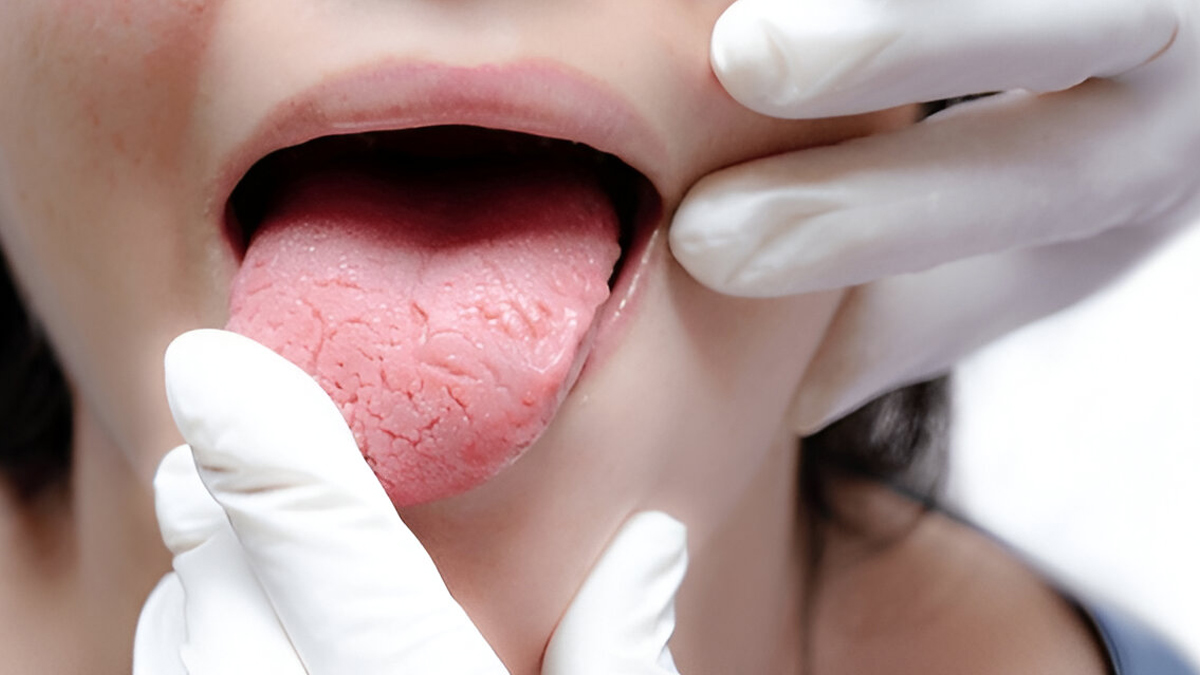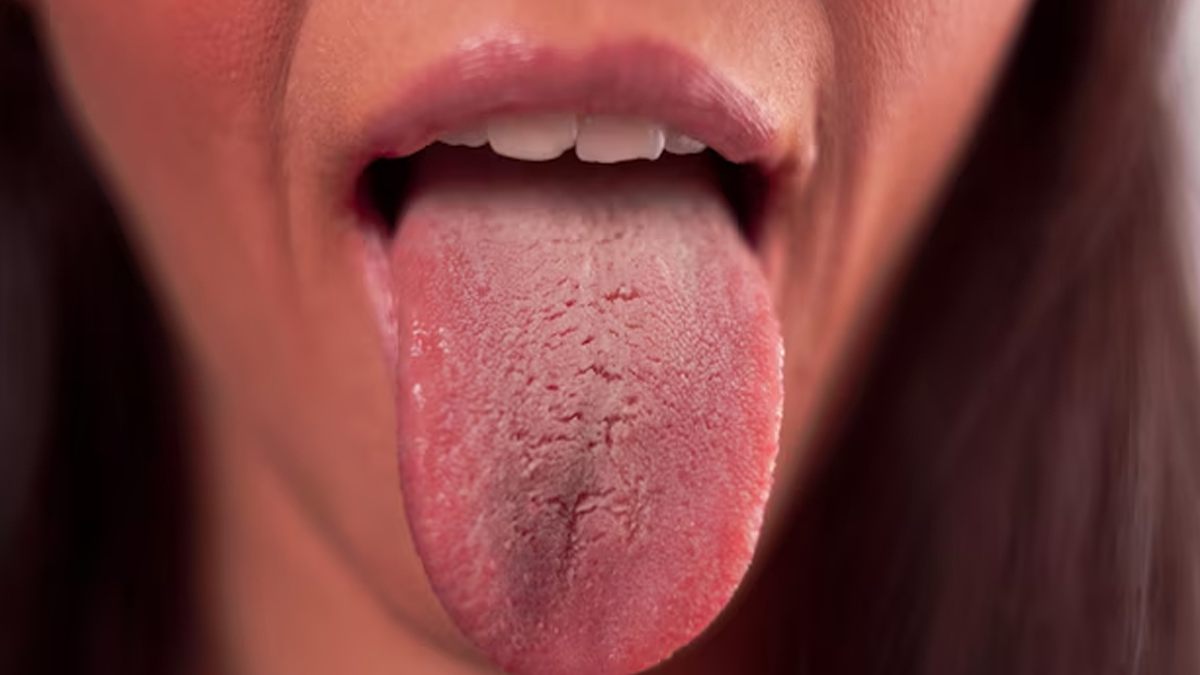
American actress and comedian Kate McKinnon recently revealed that she had been diagnosed with a geographic tongue. The 41-year-old actress told PEOPLE, "I took a photo of my tongue and sent it to an actor friend of mine. We both have the same medical condition."
Table of Content:-
But what exactly is a geographic tongue? Speaking with the OnlyMyHealth team, Dr Prashant Sinha, Head of Emergency, PSRI Hospital, Delhi, explains the causes, symptoms, and management strategies.
Also Read: Mouth Ulcers Could Signal Vitamin B12 Deficiency: Other Oral Signs To Watch Out For
What Is A Geographic Tongue?

Dr Sinha describes geographic tongue, also called benign migratory glossitis, as a harmless condition that affects the surface of the tongue. "In this condition, certain patches on the tongue lose the tiny finger-like projections called papillae, creating smooth, red areas that may be surrounded by slightly raised borders," he explains. These patches can change in shape and location over time, giving the tongue a map-like or 'geographic' appearance, which is how the condition got its name.
According to Dr Sinha, geographic tongue is not contagious and does not increase the risk of cancer. "It can occur at any age, but it is often seen more in adults and slightly more frequently in women than in men," he shares.
According to StatPearls Publishing, geographic tongue affects about 1%–2.5% of people worldwide, with paediatric rates ranging from 0.37% to 14.3%. Prevalence peaks at around 39.4% in adults aged 20–29 and is slightly more common in women than men.
What Causes Geographic Tongue?

Dr Sinha suggests that various factors, from dietary choices to medical conditions, can increase the risk of developing geographic tongue:
Genetic predisposition: Tends to run in families, indicating a hereditary component.
Associated conditions: Seen more often in people with psoriasis, reactive arthritis, and certain vitamin (B and iron) deficiencies.
Triggers: Spicy or acidic foods, alcohol, and tobacco can irritate the tongue and worsen symptoms.
Hormonal and stress factors: Flare-ups may be linked to hormonal changes or periods of high stress.
Benign nature: Despite these associations, geographic tongue is not harmful and usually occurs independently of serious disease.
Symptoms Of Geographic Tongue
“Many people with geographic tongue do not notice any symptoms and only discover it during a dental or medical examination,” says Dr Sinha. However, some patients may experience discomfort. Common symptoms include:
- A burning or stinging sensation on the tongue, especially when eating spicy, acidic, or very hot foods
- Sensitivity when consuming salty or sugary foods
- Changing patches on the tongue
Importantly, the discomfort is usually mild and temporary, but for some patients, it can become bothersome enough to seek medical advice.
Also Read: Why Tongue Cancer Risk Isn’t Just About Tobacco
How To Manage Geographic Tongue

The good news is that geographic tongue does not require a cure and often improves on its own, says Dr Sinha. Treatment focuses on managing symptoms when they appear. Doctors usually recommend:
- Avoiding foods and substances that trigger irritation, such as spicy or acidic foods, alcohol, and tobacco
- Maintaining good oral hygiene
- Topical treatments may be prescribed, such as corticosteroid rinses, antihistamine mouth rinses, or anaesthetic gels, which can help reduce irritation and burning.
- Nutritional supplements
Most patients do not need ongoing treatment, and reassurance from the doctor that the condition is harmless often provides significant relief.
Conclusion
Kate McKinnon’s candid revelation has brought attention to a condition that, while visually striking, is harmless and manageable. Geographic tongue rarely requires medical treatment and typically resolves or improves on its own. With simple lifestyle adjustments, such as avoiding trigger foods, maintaining good oral hygiene, and using topical remedies when needed, most people can keep discomfort minimal.
Also watch this video
How we keep this article up to date:
We work with experts and keep a close eye on the latest in health and wellness. Whenever there is a new research or helpful information, we update our articles with accurate and useful advice.
Current Version
Sep 15, 2025 11:09 IST
Published By : Tenzin Chodon